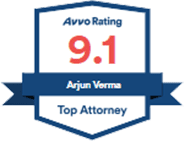
Procedures for Calculating Maximum Period of Stay Regarding the Limitations on Admission for H-1B and L-1 Nonimmigrants (AFM Update AD 05-21)
To: REGIONAL DIRECTORS
SERVICE CENTER DIRECTORS
DISTRICT DIRECTORS
OFFICERS-IN-CHARGE
INTERNATIONAL AFFAIRS OFFICE DIRECTOR
ADMINISTRATIVE APPEALS OFFICE DIRECTOR
NATIONAL BENEFIT CENTER DIRECTOR
From: Michael Aytes /S/
Acting Associate Director for Domestic Operations
Date: October 21, 2005
Re: Procedures for Calculating Maximum Period of Stay Regarding the Limitations
on Admission for H-1B and L-1 Nonimmigrants (AFM Update AD 05-21)
USCIS Headquarters continues to receive inquiries from the public concerning
the proper interpretation of § 214(g)(4) of the Immigration and Nationality
Act (“INA”) and 8 CFR § 214.2(h)(13), which relate to
the maximum period of admission for H nonimmigrants. Petitions for aliens
classified as H-1B nonimmigrants who have spent the maximum period of
time in the United States permitted by statute in H-1B status may not
be approved unless they have remained outside of the United States for
the specific period of time referenced in the related regulation.1
[1] There are certain statutory exceptions to this maximum under the American Competitiveness in the Twenty-First Century Act (“AC21”) that are not covered in this memorandum.
The public inquiries concern whether time spent outside of the United States during the validity period of an H-1B petition counts toward the “maximum period of time in the United States.” An example of this is when an H-1B nonimmigrant has been outside of the United States for two weeks each year on vacation during his or her six-year period of stay in the United States and seeks to “recapture” each two-week period spent outside the United States in order to further extend his or her stay in H-1B status.2
2 The term recapture in this memo is used as a short-hand for the period of time spent outside the United States that an alien seeks to have subtracted from their maximum period of stay in H-1B status, as governed by INA § 214(g)(4), in order to have that period of time added back (i.e., “recaptured”) when the alien requests an extension of their H-1B status.
On October 18, 2005, Acting Deputy Director Robert Divine designated Matter of IT Ascent, EAC# 0404753189, as binding policy guidance upon U.S. Citizenship and Immigration Services (USCIS). The decision provides that time spent outside the U.S. during the validity of an H-1B petition may be added back, or “recaptured” to the period of stay allowed as an H-[1]1B without demonstration that the time spent outside the U.S. was meaningfully interruptive. The applicant need only demonstrate that he or she was outside the U.S. for the period of time requested.
Given that the term “period of authorized admission” upon which the AAO relies in Matter of IT Ascent, is also found in the L-1 nonimmigrant statute at INA § 214(c)(2)(D), the Acting Deputy Director further directed that the reasoning in that decision be extended to the calculation of maximum periods of stay by L-1 nonimmigrants.
Finally, the Acting Deputy Director instructed that the spouse and minor child of a principal alien who recaptures H-1B or L-1 periods may receive periods of H-4 or L-2 stay coextensive with that of the principal alien.
Henceforth, any days spent outside of the United States during the validity period of an H-1B or L-1 petition will not be counted toward the maximum period of stay in the United States in H-1B or L-1 status, provided that the alien is able to submit independent documentary evidence establishing that he or she was in fact physically outside of the United States during the day(s) for which the alien is seeking recapture.3 The burden of proof rests with the alien to establish his or her eligibility for any recapture benefits. This memorandum supersedes all previous guidance on requests pertaining to “recapturing” time for nonimmigrant workers admitted pursuant to INA § 101(a)(15)(H)(i)(b) and INA § 101(a)(15)(L).
3. A “day” is construed to mean a full 24 hours. Partial days spent outside of the United States, e.g., an afternoon trip to Canada, will not be recaptured and added back to the total maximum period of stay.
1. Background
INA § 101(a)(13)(A) provides: “The terms “admission”
and “admitted” mean, with respect to an alien, the lawful
entry of the alien into the United States after inspection and authorization
by an immigration officer.”
In general, INA § 214(g)(4) provides: “In the case of a nonimmigrant described in section 101(a)(15)(H)(i)(b), the period of authorized admission as such a nonimmigrant may not exceed 6 years.”
Pursuant to 8 C.F.R. § 214.2(h)(13)(iii)(A):
An H-1B alien in a specialty occupation . . . who has spent six years in the United States under[2] section 101(a)(15)(H) and/or (L) of the Act may not seek extension, change status or be readmitted to the United States under section 101(a)(15)(H) or (L) of the Act unless the alien has resided and been physically present outside the United States, except for brief trips for business or pleasure, for the immediate prior year.
INA § 214(c)(2)(D) provides: “The period of authorized admission for – (i) a nonimmigrant admitted to render services in a managerial or executive capacity under section 1101(a)(15)(L) of this title shall not exceed 7 years; or (ii) a nonimmigrant admitted to r[3]ender services in a capacity that involves specialized knowledge under section 1101(a)(15)(L) of this title shall not exceed 5 years.”
Pursuant to 8 C.F.R. § 214.2(l)(12)(i) regarding the limitation on period of stay for an L-1 nonimmigrant:
An alien who has spent five years in the United States in a specialized knowledge capacity or seven years in the United States in a managerial or executive capacity under section 101(a)(15)(L) and/or (H) of the Act may not be readmitted to the United States under section 101(a)(15)(L) or (H) of the Act unless the alien has resided and been physically present outside the United States, except for brief trips for business or pleasure, for the immediate prior year.
2. Use
This memorandum is intended solely for the training and guidance of USCIS
personnel in performing their duties relative to adjudications. It is
not intended to, does not, and may not be relied upon to create any right
or benefit, substantive or procedural, enforceable at law or by any individual
or other party in removal proceedings, in litigation with the United States,
or in any other form or manner.
3. Contact Information
Questions regarding this memorandum may be directed to Kevin Cummings
at USCIS Headquarters Office of Program and Regulation Development, or
Joseph Holliday at USCIS Headquarters Office of Service Center Operations,
though appropriate supervisory channels. Alternatively, USCIS officers
may send an e-mail to “Adjudicator’s Field Manual” by
typing AFM in the subject line.
[4]These policies and procedures are effective immediately and will be included in the Adjudicator’s Field Manual (AFM) in the next release of I-Link.
1. Section 31.3(g) in Chapter 31 of the Adjudicator’s Field Manual is amended to include the following new paragraph at AFM 31.3(g)(9) to read as follows:
31.3 H-1B Classification and Documentary Requirements
****
(g) Adjudicative Issues.
***
(9) Procedures for Calculating Maximum Period of Stay Regarding the Limitations on Admission of H-1B Nonimmigrants. USCIS officers shall comply with the following guidance to determine whether periods of time spent by an H-1B nonimmigrant worker in a specialty occupation outside the United States will be recaptured:
(A) Periods of Time Outside the United States that May Be Recaptured by an H-1B Nonimmigrant Worker in a Specialty Occupation. Because section 214(g)(4) of the Act states that “the period of authorized admission” may not exceed 6 years, and because “admission” is defined as “the lawful entry of the alien into the United States after inspection and authorization by an immigration officer” only time spent in the United States as an H-1B counts towards the maximum. Thus, upon requesting an extension, the H-1B nonimmigrant can request that full days spent outside the U.S. during the period of petition validity be recaptured and added back to his or her total maximum period of stay. As always, it is the applicant/petitioner’s burden to demonstrate eligibility, and appropriate evidence, such as copies of passport stamps I-94’s, and/or plane tickets must be submitted. The applicant for extension seeking to recapture time spent outside the U.S. need not demonstrate that the time spent outside the U.S. was meaningfully interruptive of his or her H-1B stay. The reason for the absence is not relevant to the question of whether the time may be recaptured. Any trip of at least one 24-hour day outside the U.S. for any purpose, personal or business, can be recaptured. The applicant for extension must only demonstrate to the satisfaction of the adjudicator that he or she was outside the U.S. for the amount of time for which recapture is requested. Matter of IT Ascent, EAC# 0404753189, was designated as binding policy guidance on October 18, 2005. Officers should refer to the reasoning contained in this decision.
(B) Evidence. The burden of proof remains with the H-1B petitioner and/or the H-1B beneficiary to submit evidence documenting any and all exact periods of physical presence outside the United States when seeking an extension of petition validity and extension of stay as an H-1B nonimmigrant. The petitioner and/or beneficiary are clearly in the best position to organize and submit evidence of the beneficiary’s departures from and reentry into the United States. While petitioners often submit a summary and/or charts of travel and the number or days spent out of the United States, which eases review of the accompanying documentation, petitioners are also required to submit independent documentary evidence establishing that the alien was outside of the United States during all the days, weeks, months etc. that he or she seeks to recapture (e.g. photocopies of passport stamps and/or Form I-94 arrival-departure records).
The fact that the burden may not be met for some claimed periods, or has been met for some claimed periods, has no bearing on the remaining claimed periods. Any periods of time for which the burden has been met may be added to the eligible period of admission upon approval of the application for extension of status. An alien may not be granted an extension of stay for periods of time that are not supported by independent documentary evidence. A Request for Evidence should not be sent to the petitioner for any claimed periods unsupported by evidence.
In some instances, the alien may not be granted the entire period of time requested because the evidence submitted does not establish eligibility for the entire period of stay requested. In those situations, the approval notice should be issued for the period of time for which eligibility has been demonstrated.
The status of an H-4 dependent of an H-1B nonimmigrant is subject to the same period of admission and limitations as the principal alien. For example, if an H-1B alien is able to recapture a two-week business trip abroad for each year for five years in a row (for a total of 10 weeks), then his or her H-4 dependents, if seeking extension of stay, should be given an extension of stay up to the new expiration of the H-1B alien's stay. The statute and regulations allow H-4 status only "if [the dependents] are accompanying or following to join the beneficiary in the United States." If it appears that the dependent is not using or is not intending to use H-4 status primarily to accompany or follow to join the principal H-1B alien, such as a situation in which the principal only is physically present or intends to be physically present in the United States for a small proportion of his or her period of H-1B admission and the dependents are using H-4 status to evade the limitations on or eligibility rules of the nonimmigrant options that otherwise would be available, then the H-4 extension of stay may be denied, limited or revoked on notice giving the H-4 the opportunity to provide evidence of the intention primarily to accompany the principal.
Officers involved in the adjudication of H-1B petitions are cautioned that the examples provided in this memorandum are not all inclusive. Situations may develop in the adjudication of certain petitions, which will require the adjudicating office to use discretion. Therefore, decisions on petitions for extension concerning this issue that contain unique or novel circumstances may be certified to the Administrative Appeals Office for review.
****
2. Section 32.6 in Chapter 32 of the Adjudicator’s Field Manual
is amended to include a new paragraph (g) at AFM 32.6 to read as follows:
32.6 Technical Issues
******
(g) Procedures for Calculating Maximum Period of Stay Regarding the Limitations
on Admission of L-1 Nonimmigrants. USCIS officers shall comply with the
following guidance to determine whether periods of time spent outside
the United States by an L-1 nonimmigrant worker in a specialized knowledge
or a managerial or executive capacity will be recaptured:
(1) Periods of Time Outside the United States that May Be Recaptured for an L-1 Nonimmigrant Worker in a specialized knowledge or a managerial or executive capacity. Because section 214(c)(2)(D) of the Act states that “the period of authorized admission for” an L-1 nonimmigrant admitted to render services in a managerial or executive capacity shall not exceed 7 years, or an L-1 nonimmigrant admitted to render services in a capacity that involves specialized knowledge shall not exceed 5 years, and because “admission” is defined as “the lawful entry of the alien into the United States after inspection and authorization by an immigration officer” only time spent in the United States as an L-1 counts towards the maximum.
Thus, upon requesting an extension, the L-1 nonimmigrant can request that full days spent outside the U.S. during the period of petition validity be recaptured and added back to his or her total maximum period of stay. As always, it is the applicant/petitioner’s burden to demonstrate eligibility, and appropriate evidence, such as copies of passport stamps, I-94’s and/or plane tickets must be submitted.
The applicant for extension seeking to recapture time spent outside the U.S. need not demonstrate that the time spent outside the U.S. was meaningfully interruptive of his or her L-1 stay. The reason for the absence is not relevant to the question of whether the time may be recaptured. Any trip of at least one 24-hour day outside the U.S. for any purpose, personal or business, can be recaptured. The applicant for extension must only demonstrate to the satisfaction of the adjudicator that he or she was outside the U.S. for the amount of time for which recapture is requested. Matter of IT Ascent, EAC# 0404753189, was designated as binding policy guidance on October 18, 2005. While that decision only deals with H-1B extensions, Officers should refer to this decision as illustrative of the rationale for allowing recapture of any time spent outside the United States by L-1 nonimmigrants.
(2) Evidence. The burden of proof remains with the L-1 petitioner and/or the L-1 beneficiary to submit evidence documenting any and all exact periods of physical presence outside the United States when seeking eligibility for an extension of petition validity and extension of stay as an L-1 nonimmigrant. The petitioner and/or beneficiary are clearly in the best position to organize and submit evidence of the beneficiary’s departures from and reentry into the United States. While petitioners often submit a summary and/or charts of travel and the number or days spent out of the United States, which eases review of the accompanying documentation, petitioners are also required to submit independent documentary evidence establishing that the alien was outside of the United States during all the days, weeks, months etc. that he or she seeks to recapture (e.g. photocopies of passport stamps and/or Form I-94 arrival-departure records).
The fact that the burden may not be met for some claimed periods, or has been met for some claimed periods, has no bearing on the remaining claimed periods. Any periods of time for which the burden has been met may be added to the eligible period of admission upon approval of the application for extension of status. An alien may not be granted an extension of stay for periods of time that are not supported by independent documentary evidence. A Request for Evidence should not be sent to the petitioner for any claimed periods unsupported by evidence.
In some instances, the alien may not be granted the entire period of time requested because the evidence submitted does not establish eligibility for the entire period of stay requested. In those situations, the approval notice should be issued for the period of time for which eligibility has been demonstrated.
The status of an L-2 dependent of an L-1 nonimmigrant is subject to the same period of admission and limitations as the principal alien. For example, if an L-1 alien is able to recapture a two-week business trip abroad for each year for five years in a row (for a total of 10 weeks), then his or her L-2 dependents, if seeking extension of stay, should be given an extension of stay up to the new expiration of the L-1 alien's stay. The statute and regulations allow L-2 status only "if [the dependents] are accompanying or following to join the beneficiary in the United States." If it appears that the dependent is not using or is not intending to use L-2 status primarily to accompany or follow to join the principal L-1 alien, such as a situation in which the principal only is physically present or intends to be physically present in the United States for a small proportion of his or her period of L-1 admission and the dependents are using L-2 status to evade the limitations on or eligibility rules of the nonimmigrant options that otherwise would be available, then the L-2 extension of stay may be denied, limited or revoked on notice giving the L-2 the opportunity to provide evidence of the intention primarily to accompany the principal.
Officers involved in the adjudication of L-1 petitions are cautioned that the examples provided in this memorandum are not all inclusive. Situations may develop in the adjudication of certain petitions, which will require the adjudicating office to use discretion. Therefore, decisions on petitions for extension concerning this issue that contain unique or novel circumstances may be certified to the Administrative Appeals Office for review.
* * * *
3. The Transmittal Memoranda buttons of the AFM and iAFM are revised by
adding, in each and in numerical order, a new entry to read:
AD 05-21 Chapter 31.3 Adds guidance relating to the
[October 20, 2005] and Chapter 32.6 recapture of time spent
outside the United States by H-1B and L-1 nonimmigrants.
4. A new button entitled “USCIS Binding Policy Guidance” is added to the Rulings and Decisions bookshelf and the following decision is added thereto

Trusted & Highly Recommended
See What Our Clients Have to Say
-
They answered all our questions and guided us through all the complications involved in our case
We had a very smooth process throughout the whole AOS application with Verma Law Firm. They answered all our questions and ...
Kushagra -
My green card process was smooth. Thank you Verma for all the help you provide during the process.
Very detailed in the green card application and my green card process was smooth. Thank you Verma for all the help you ...
Chacha -
They were always available through phone and responded to my emails quickly.
Very Nice Team to work with. I applied for my Parent Green card through Verma Law firm. They have walked me through all the ...
Madhuri B.



